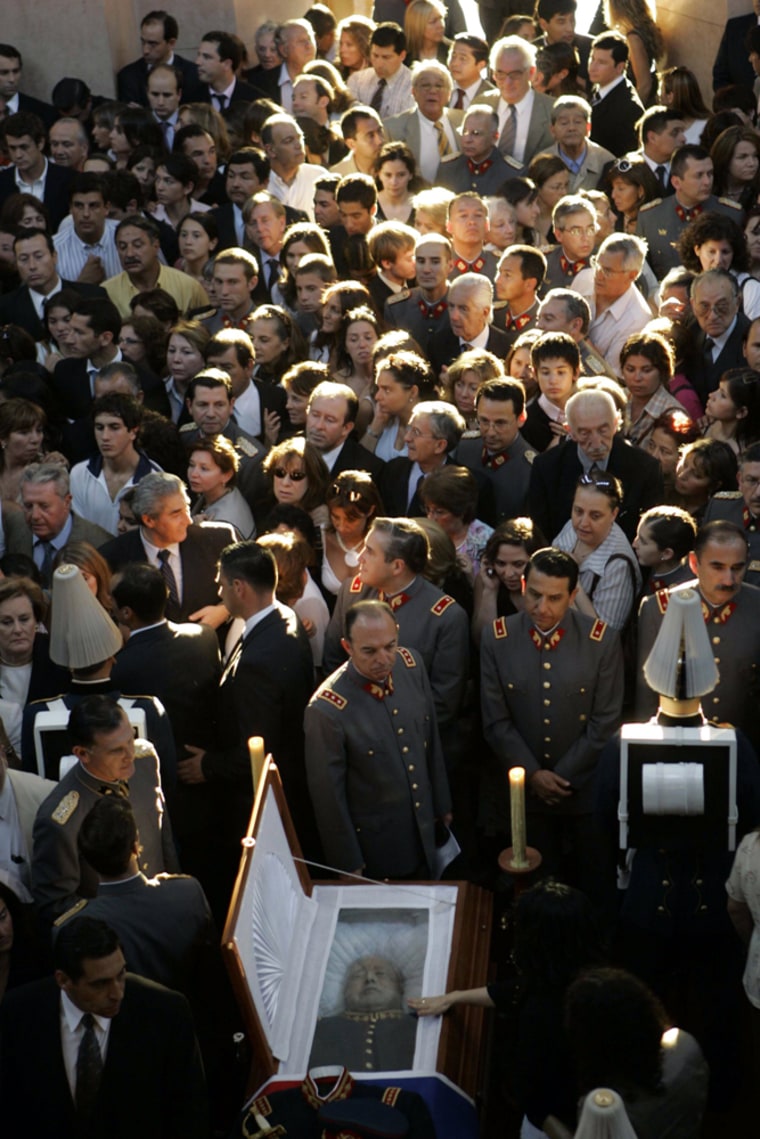Former dictator Augusto Pinochet, who polarizes public opinion in his native Chile in death as he did in life, will be cremated on Tuesday following a military funeral.
Scores of relatives, friends and the top brass of the Chilean military are expected to pack a chapel in the capital Santiago to bid farewell to a man whose repressive 1973-1990 rule made him infamous around the world.
His remains will be cremated at an as-yet-undisclosed location. His son has said the family do not want a burial because they fear Pinochet’s enemies would vandalize his grave.
Pinochet died on Sunday after heart failure. He was 91.
More than three decades after he seized power in a swift, violent coup and nearly 17 years after he relinquished it, news of his death still could move some Chileans to joy and others to tears.
Controversial legacy
His fans and detractors have fought a war of words in recent days in a bid to define his legacy.
The general’s supporters say his coup was necessary to save Chile from chaos, communism and possible civil war.
They also highlight the free-market reforms of the Pinochet era, saying they laid the foundations for long-term political and economic stability that have made Chile a model in the region.
Pinochet’s opponents regard him as a murderer who escaped justice and should have been tried for human rights abuses.
More than 3,000 people were killed in political violence during Pinochet’s rule, some 28,000 people were tortured and hundreds of thousands of Chileans went into exile.
The general’s body has been lying in state since early on Monday in the imposing military college in the east of the city, where he trained as a soldier.
Some 13,000 supporters have flocked to see it, and many were still waiting overnight. The college was due to remain open to the public until 6 a.m. on Tuesday — nine hours later than previously planned.
The military said this was to cope with the number of people who wanted to see the general’s body, which lay in a glass-topped casket, clad in a dark blue military uniform.
Pinochet’s cap, sword and a braided military jacket were placed at the foot of the coffin atop a red, white and blue Chilean flag.
The government denied Pinochet a full state funeral, and he will have a military funeral instead.
The general’s youngest son, Marco Antonio Pinochet, described that decision as “petty” and said the center-left government was “incapable of taking a noble stance at this moment in history.”
“The biggest perpetrator of genocide in our history has died,” said Iris Huenulef, a 33-year-old housewife who joined a handful of anti-Pinochet protesters in Santiago on Monday.
“This gives me a little peace. The fact he’s no longer here is important for our country, our democratic transition and for our children.”
